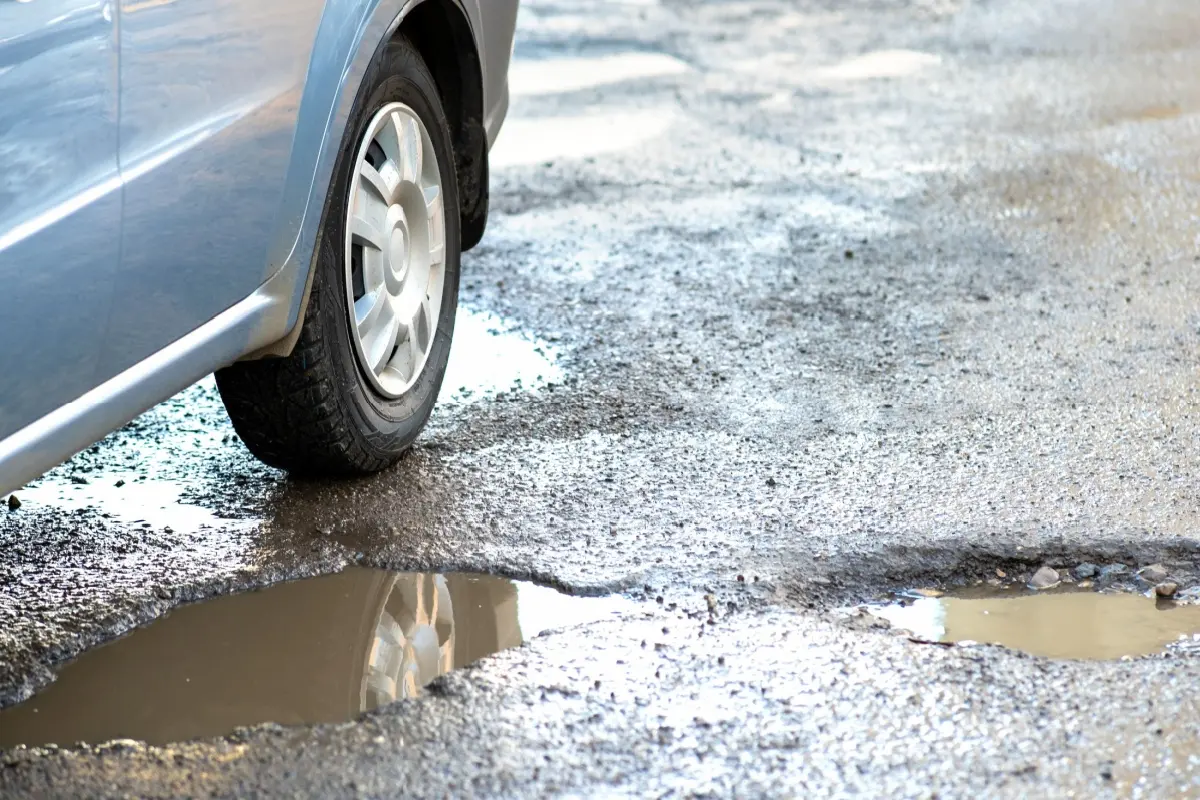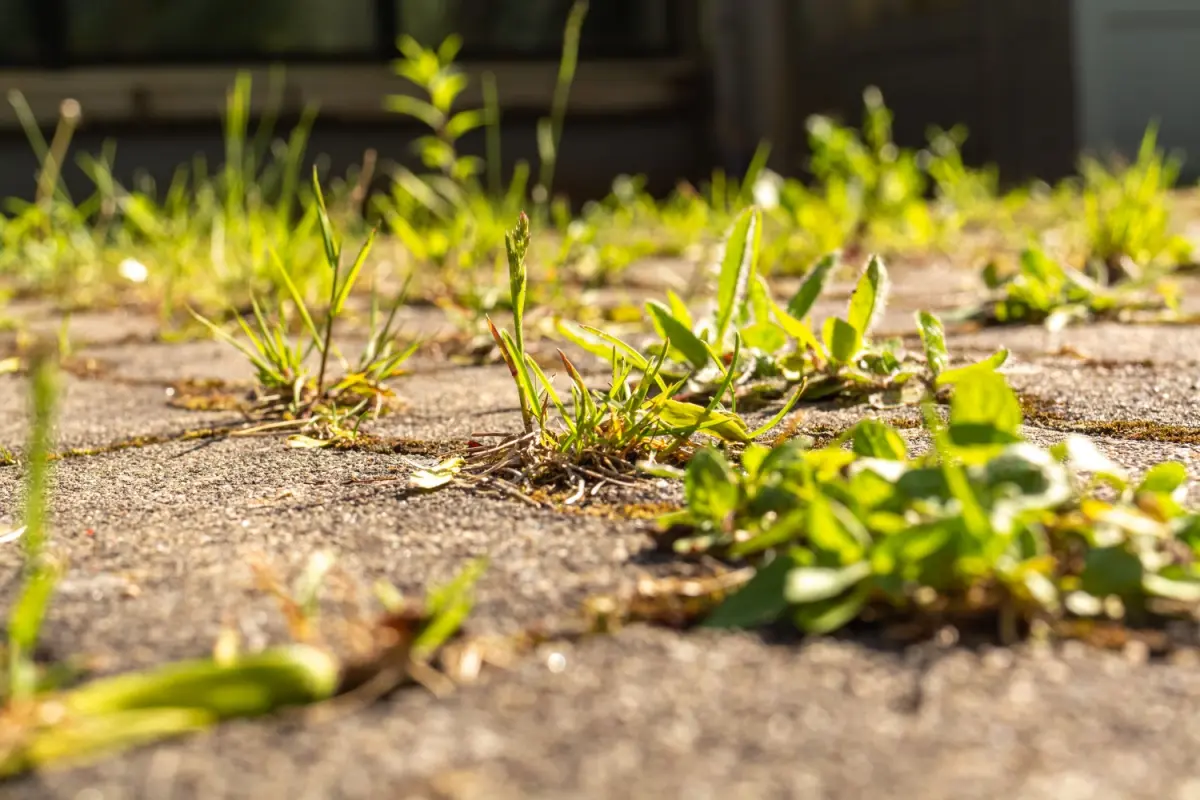A well-maintained driveway is a key part of your home’s curb appeal and functionality. However, daily wear and environmental exposure can wear down the material over time enough that it should be resurfaced or repaved. Pavers tend to last longer than concrete and asphalt, but most driveway materials will need attention after 20 to 25 years.
Luckily, your driveway will give you signs indicating damage that can help you plan and budget accordingly. Here are 10 common indicators that your driveway might need repaving.
Cracks are one of the most common driveway problems homeowners face. While small hairline cracks might not seem alarming, they can quickly expand due to weather conditions and heavy usage. Keep an eye out for the following types of cracks:

Monitor the cracks in your driveway to see if they grow, lengthen, or deepen. This indicates that repairs are needed; the longer you ignore them, the more costly they can become.
When the borders or edges of your driveway crack, it’s often more than an aesthetics issue. Weak edges pose safety risks due to poor foundational support or soil erosion that weakens the supporting system. If left unattended, it can lead to further deterioration and the need to replace your driveway entirely.
Water that pools on your driveway following a rainstorm can indicate drainage issues. It should not be overlooked, as drainage can significantly weaken your driveway’s foundation, leading to cracks and potholes.
When water pooling occurs, it’s best to consult a professional to help you determine whether a replacement will suffice or if fixing it requires a full driveway replacement.
You might dismiss potholes as merely an eyesore, but they can damage your vehicle’s tires and suspension. Water that seeps into a pavement crack and doesn’t wash away can freeze over time and, eventually, tear apart your pavement.

If your driveway is peppered with potholes, you should fill the hole with dirt and monitor it to see if it reappears or worsens over time.
Sunlight and other weather elements can cause your driveway’s color to fade over time. At first glance, this may seem like a purely cosmetic issue, but fading can also indicate that the asphalt has weakened to the point of replacement.
Uneven driveway surfaces are both a tripping hazard and drainage points. Whether your driveway settled over time or it was installed without the proper grading, uneven driveways can accelerate other driveway issues, such as poor drainage and cracking. Truly unlevel driveways should be replaced entirely to help prevent other costly driveway repairs.
When a driveway is subject to heavy traffic or water runoff, its surface can erode. This is especially common with gravel driveways, which are more likely to shift or move with weather and general wear and tear. Monitor your driveway for ruts and bare spots, as well as signs that may indicate it’s time to replace your driveway.
Surface erosion can also expose underlying layers, making the driveway more susceptible to cracks and deterioration, as well as pose a safety risk. If the damage is small, you could repave the driveway, but a full replacement is better for addressing more significant and widespread damage.
When your driveway is cracked, weeds can sprout through your driveway and expand its roots. While small weeds are usually nothing to be concerned about, plants with larger root systems can cause driveways to become bumpy or uneven. Over time, they can lead to further deterioration. A local paving contractor can help you diagnose dangerous root systems and brainstorm a way to repair your driveway so it’s safe to use.

Most driveways have a lifespan of about 20 to 25 years, depending on the material and maintenance. If your driveway is approaching this age, it’s high time to evaluate its condition and brainstorm a plan to repair it.
Many driveway problems can be addressed with a simple repair. But if you find yourself paying for quick fixes more often than not, it’s probably time to consider a full replacement. Over time, patchwork will weaken your driveway’s surface and render repairs less effective for solving the problem.
The average cost to pave a driveway ranges from $2 to $17 per square foot. A professional paving contractor specializing in driveway installations is the best professional to hire to repave a driveway. They will give you a price based on the following cost factors:
| Material | Cost per Square Foot | Average Total Cost (600 sq ft) |
| Asphalt | $3–$5 | $1,800–$3,000 |
| Concrete | $5–$10 | $3,000–$6,000 |
| Gravel | $1–$3 | $600–$1,800 |
| Pavers | $10–$45 | $6,000–$27,000 |
For the most accurate estimates, consult a local driveway contractor who can provide a quote based on your specific project needs.
When considering the cost of your driveway repaving project, it’s essential to assess your overall home renovation budget. Many homeowners follow the 30% rule for home renovation, which suggests that a portion of your home’s value should go toward renovations.
This rule helps ensure that your home improvement projects, including driveway repaving, align with the value of your home and don’t overextend your finances.
We’ve compiled the answers to some common questions you might have if you decide to repave your driveway:
The extent of the damage will determine whether you should repave or resurface your driveway. Resurfacing can help address minor cracks and surface wear, but you should consider repaving your driveway if you have drainage issues, potholes, or recurring problems repairs can not address.
The best material for your driveway replacement depends on your budget, aesthetic preferences, and durability needs. Asphalt is cost-effective and quick to install, while concrete lasts longer. Gravel is the most affordable but requires more maintenance. Pavers provide a high-end appearance but come at a higher cost.
Yes, repaving a driveway can increase your home’s curb appeal and overall value if you’re replacing one that’s in poor condition. How much value it adds will depend on your chosen materials and overall design. A well-maintained driveway is attractive to potential buyers and can set your property apart in the real estate market.